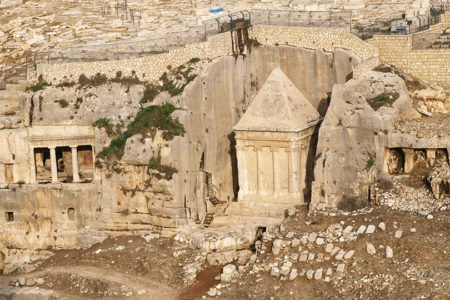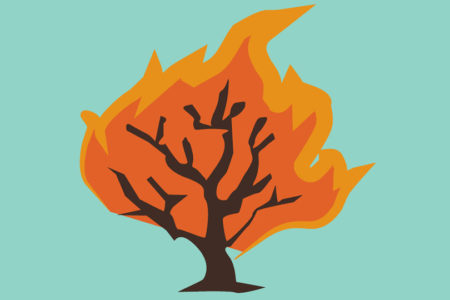From Bill Sutter’s Desk Nov/Dec 2008
Lisa was on the job only two days when the call came. But she was ready. Sixty intensive hours in the classroom, including written instruction and practical training, had prepared her. She rode in the ambulance as part of an emergency response team and soon arrived at the scene of a serious car accident outside Jerusalem where she treated an Arab child bleeding profusely from severe injuries.
Lisa Arking is a 19-year-old American from Brooklyn, New York, whom I met while visiting the emergency response facilities of the Magen David Adom (MDA) Jerusalem Station. The visit was a highlight of my recent trip to Israel. Explaining her desire to serve with MDA, Lisa declared, “I have a real love for Israel and wanted to find a way I could contribute.”
The Jerusalem Station is MDA’s busiest dispatch center, one of 11 such facilities that serve Jews, Muslims, Christians, and international visitors. It was from the Jerusalem Station that ambulances and mobile intensive-care units were dispatched to treat the victims of last summer’s bulldozer and tractor attacks in Jerusalem. Emergency services were on the scenes within minutes.
We learned how the 2006 Lebanon War with Hezbollah presented unusual challenges for Magen David Adom. Working double-time throughout the war, MDA teams evacuated buildings and populated areas under heavy rocket attack; treated trauma victims; transported the elderly and infirm out of harm’s way; and delivered much-needed supplies to people living in bomb shelters throughout northern Israel. It is no small wonder that Magen David Adom workers are frequently called “Israel’s heroes.”
Often MDA’s professional and volunteer heroes serve under extraordinarily difficult conditions. Jonathan Feldstein, Israel representative of American Friends of Magen David Adom, and volunteer Lisa Arking explained: “Israel is the only country in the world where life-support ambulances and mobile intensive-care units are hit by terror attacks.” MDA has outfitted many of its vehicles with armor to withstand bombings and bullet-proof glass to protect emergency workers from sniper fire.
Feldstein, who coordinated and hosted our Magen David Adom Jerusalem Station visit, detailed MDA’s nationwide network of services provided by 1,500 employees and 12,000 volunteers serving with 100 emergency medical stations and 11 dispatch centers. He explained how MDA collects and processes more than 97 percent of Israel’s total blood needs and provides 100 percent of the Israel Defense Forces’ blood requirements. The 700 ambulances used for basic and advanced life-support treatment were donated by friends in the United States and other countries.
Our tour included an unforgettable visit to the Jerusalem Station’s response dispatch room, which receives more than 50,000 emergency telephone calls annually. We witnessed highly trained personnel fielding calls non-stop using state-of-the-art technologies to dispatch ambulances to people in need.
Unfortunately, MDA workers face another disturbing difficulty: crank calls, many from cell phones stolen by enemies of the Jewish state. Such calls are intended to hinder Israel’s efforts to provide life-saving services—to both Jews and Arabs.
Our experience at MDA’s Jerusalem Station confirmed Israel’s amazing compassion. The tiny Jewish nation is committed to caring not only for its Jewish population but also for its Arab residents, as well as visitors from around the world.
More information about Magen David Adom’s around-the-clock services is available online at www.afmda.org.






